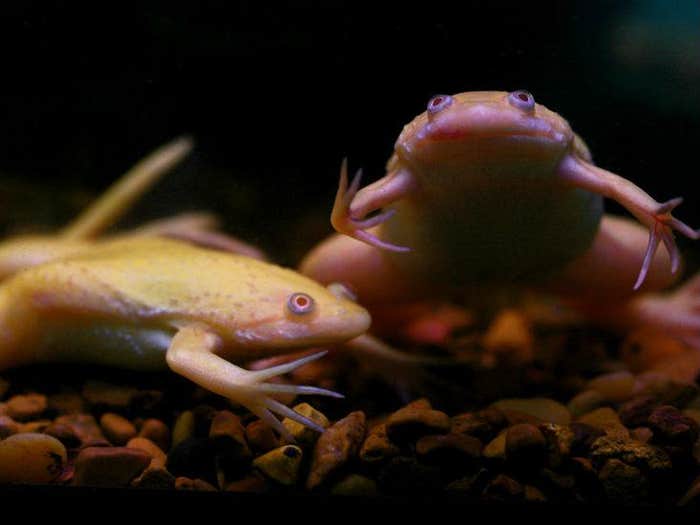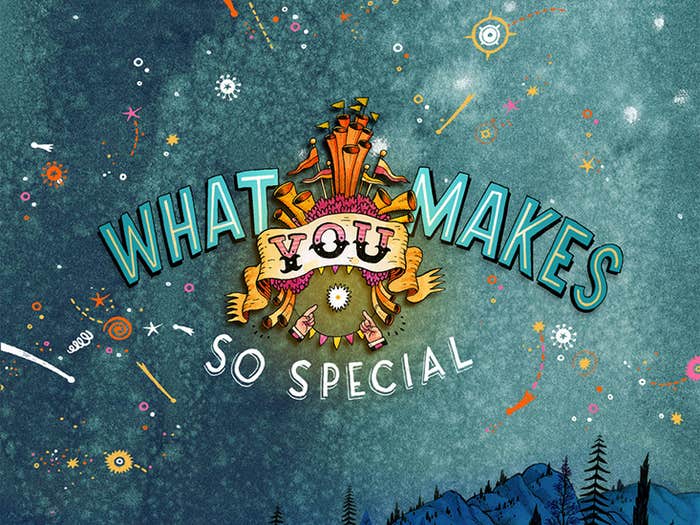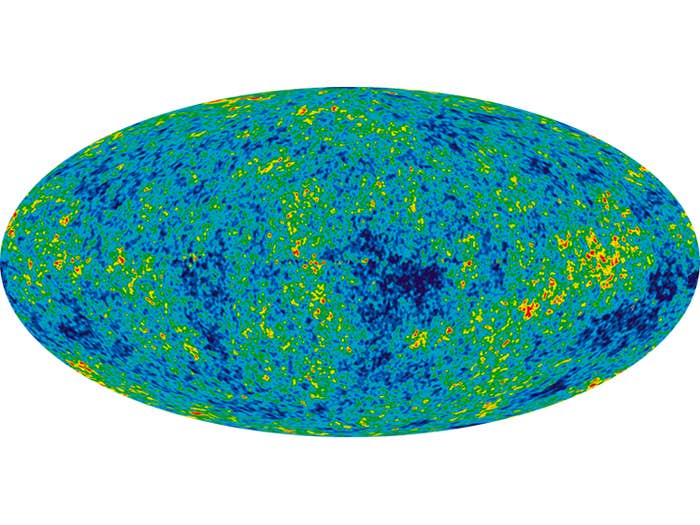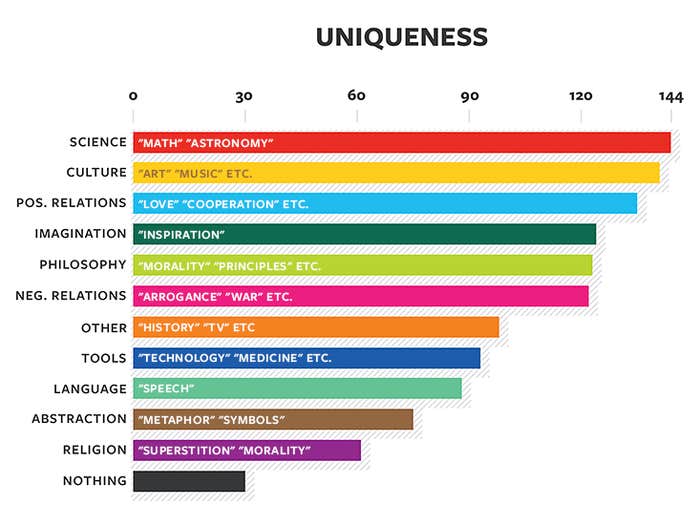Issue_1
49 articles-
Do Other Animals Make Music, or Just Sounds?
The question in the title of this post involves not one but two enigmas: Artistic merit is an abstract and slippery concept, and assigning intention to the actions of other species is a perpetual challenge. Thus, the question invites various, contradictory answers. Still, I find myself inspired by the activities of other animals, and believe […] -
The End of Human Uniqueness, and a New Beginning
Today Nautilus launched its second issue, “Uncertainty: A new look at an indeterminate world.” For now we’ve just opened up the first chapter, “Uncertainty in Nature,” with looks at how uncertainty is embedded in math, particles of matter, our genomes, and possibly space-time itself. The rest of the issue will emerge over the course of […] -
Who Owns Your Identity?
When the digital media pioneer and visionary Jaron Lanier signs his new book, Who Owns The Future?, he circles the “Who” and draws an arrow to the reader’s name, achieving a visual haiku of his message: Each of us, by name, generates a great amount of profit for the Internet’s corporations as they use our […] -
Universal Remoteness: What the Multiverse Means About Us
Our Universe is vast and mostly empty. Even if many of the billions of planets we suspect are out there have life, most of the cosmos is uninhabitable, and those worlds are unreachable by any means we know. That’s just within our galaxy, which is one of about 100 billion in the part of the […] -
14 Words for Horse: The Linguistics of Game of Thrones
Seven hundred people gathered at the University of California, San Diego, one day this spring to hear the creators of three fictional languages talk about how linguistics has infiltrated Hollywood, particularly when it comes to building believable make-believe worlds. When it comes to building make-believe worlds, inventing a language makes it seem that much more […]
-

Be Careful With the Powerful Medicine That Is Poop
It has recently become clear that each one of us is more microbe than human—at least when it comes to the number of cells in our bodies. The bacteria that swarm through our guts, across our skin, and in every orifice you have outnumber our human cells by at least 10 to 1, though their […]
-

Will We Reverse-Engineer the Human Brain Within 50 Years?
Gary Marcus can’t understand why people are shocked when he calls the brain a computer. The 43-year-old professor of psychology at New York University, author of Kluge, about the haphazard evolution of the brain, and a leading researcher in how children acquire language, grins and says it’s a generational thing. Nautilus Members enjoy an ad-free experience. Log […]
-

A Crowdsourced Expert Interview
Nautilus readers delve further into the idea that metaphors make us human.
-

Ask a Cyborg
Profile subject Neil Harbisson is coming to Twitter to talk about merging with technology.
-
Following One Reader’s Nose
The variability in how people smell has a lot to do with their genetics. -
Collected Commenter Wisdom
A sampling of the most lively discussions from Nautilus’ first month. -
You Didn’t Build That: The Best Animal Engineers
If an intelligent alien species landed on the small bit of galactic rock that we call home, they might get out of their spaceships, have a look around, and decide that we—that is, our species—are the master builders on our planet. There would be plenty of reasons to think so. We build bridges spanning enormous […] -
You Didn’t Build That FONT WEIGHT BUSTED
If an intelligent alien species landed on the small bit of galactic rock that we call home, they might get out of their spaceships, have a look around, and decide that we—that is, our species—are the master builders on our planet. There would be plenty of reasons to think so. We build bridges spanning enormous […] -
Looking at Art Through Different Eyes—Like a Bee
There is more to the world than meets the human eye, a fact that hit home for the 18th-century astronomer Sir Frederick William Herschel when he discovered infrared light—a wavelength of light that lies just outside the visible portion of the electromagnetic spectrum. We can feel its heat, but we can’t see the light—not without […]




























